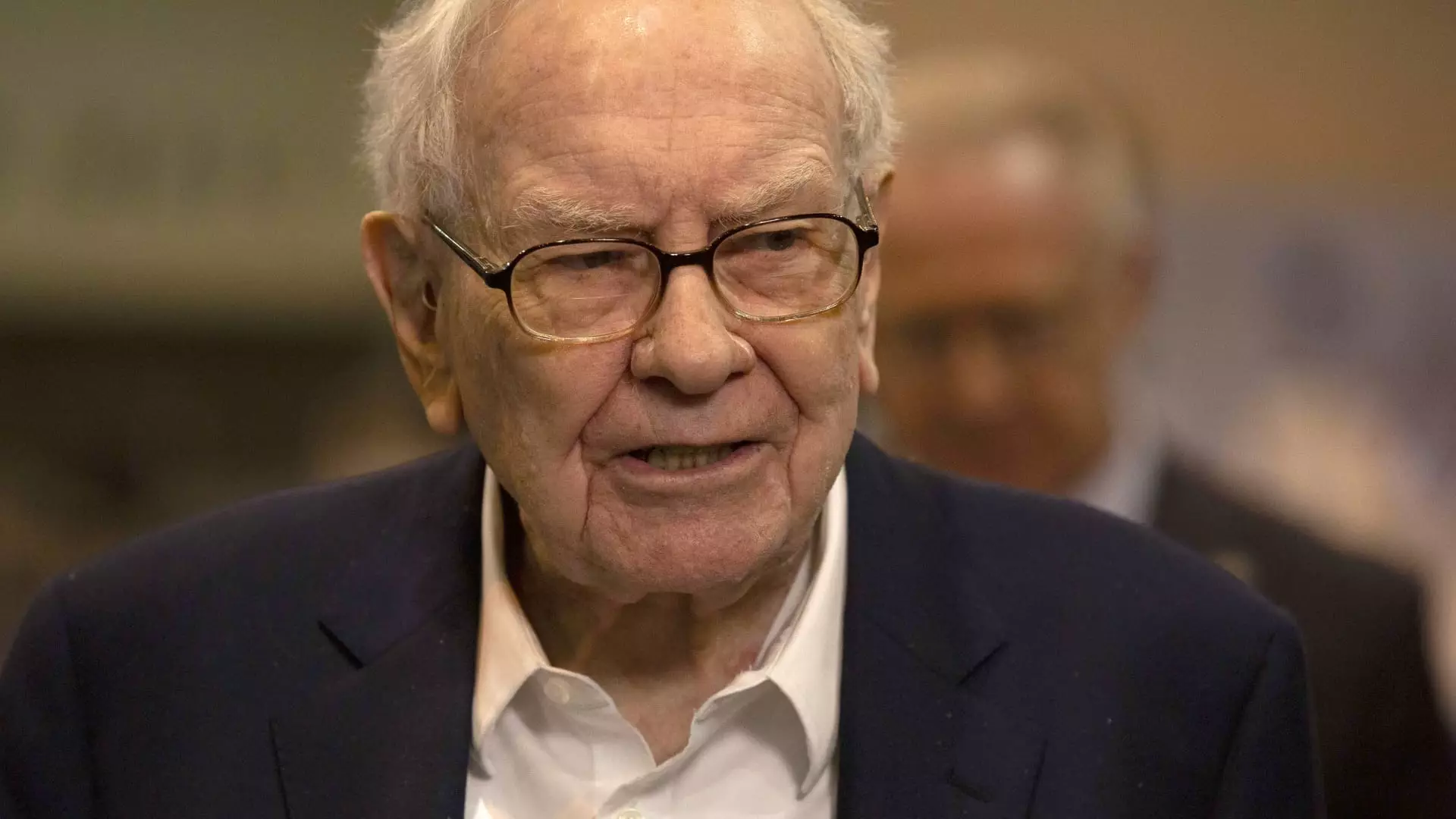Berkshire Hathaway, the multinational conglomerate led by renowned investor Warren Buffett, has recently displayed a remarkable accumulation of cash, surpassing the impressive threshold of $300 billion in the third quarter of 2023. As detailed in their latest earnings report, the cash reserves swelled to a staggering $325.2 billion, significantly increasing from $276.9 billion just one quarter prior. In this analysis, we will examine the implications of this historic cash reserve, the strategic movements behind Buffett’s stock-selling spree, and the broader economic conditions influencing these decisions.
Throughout the third quarter, Buffett’s strategy has taken on a distinctive tone, highlighted by substantial divestments from high-profile equity holdings. The sale of approximately 25% of Berkshire’s stake in Apple marks a pivotal moment, as this action reflects a persistent trend where Buffett has reduced his investment in the tech giant for the fourth consecutive quarter. This gradual depersonalization of sizable positions raises intriguing questions about his market outlook. During the same period, Berkshire Hathaway made proclamations about shedding its investment in Bank of America, a move that reportedly reaped over $10 billion since mid-July.
The decision to divest such significant portions of these investments aligns with a broader narrative of cautious optimism. Warren Buffett’s demeanor appears to embody a calculated outlook during a time when the markets have been swayed by heightened volatility and shifting economic indicators. By letting go of these hefty stakes, Buffett seems to be maneuvering on the belief that the current environment may not sustain the lofty valuations seen in recent times.
The Absence of Share Repurchases
Contrary to expectations, Berkshire Hathaway opted against repurchasing shares during this period, marking a shift in strategy compared to earlier in the year. The company had previously engaged in robust share buybacks, evidenced by a substantial $2 billion repurchase in each of the previous two quarters. However, as the conglomerate’s stock performance began to eclipse broader market indices—achieving an impressive 25% gain year-to-date compared to the S&P 500’s 20.1%—the decision to pause repurchases implies an underlying belief that current stock prices reflect an intrinsic value commensurate with risk.
Buffett’s philosophy regarding share buybacks hinges on the tenet that such actions should only be undertaken when the repurchase price is deemed below the company’s intrinsic value. This conservative stance could be interpreted as indicative of Buffett’s cautious approach given the recent tailwinds and challenges imposing themselves on the economy, particularly concerning interest rate fluctuations.
Upon reviewing Berkshire’s operational earnings, a total of $10.1 billion was recorded for the third quarter. While this figure, albeit impressive, represents a decline of around 6% year-over-year driven by subpar insurance underwriting results, it remains crucial to view these earnings through the lens of future potential. The earnings fell short of analysts’ expectations, suggesting a nuanced picture within Berkshire’s diverse portfolio of businesses.
Buffett’s strategy seems entrenched in a long-term vision. Historical precedence signifies that Berkshire’s operational resilience often shines through economic turbulence. However, with the 10-year Treasury yield surpassing 4%, and pressures mounting from rising fiscal deficits, uncertainties loom large. Notably, this fiscal landscape resonates with observers such as Paul Tudor Jones, who have voiced concerns about government candidates’ potential spending responses ahead of the impending election.
Berkshire Hathaway’s soaring cash reserves not only signify Buffett’s cautious optimism amid turbulent market conditions but also set the stage for strategic positioning in forthcoming investments. His stock-selling spree, the retreat from share repurchases, and the intent to potentially capitalize on future tax adjustments reflect a meticulous strategy that underscores Buffett’s long-standing commitment to value investing. As uncertainties around interest rates and the economic landscape persist, observers will undoubtedly remain attuned to how this iconic conglomerate navigates the complexities of the market ahead. Ultimately, Berkshire’s decisions seem to fuse a blend of traditional investment wisdom with contemporary economic realities, making them a focal point of intrigue within the financial sector.

Leave a Reply